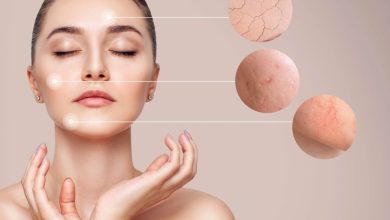Do Protein Pills Lead To Hair Growth?

Protein is an integral part of hair growth because follicles are primarily made up of protein, and a lack of protein in the diet has been linked to hair loss. With that said, below, we explore what to know about protein and your hair health, as well as, more specifically, about protein pills for hair growth.
Protein and Hair Growth
There are a lot of elements that play a role in the health of your hair. For example, hygiene, using non-damaging products, and regular trims can help your hair look its best. At the same time, what you eat also plays a vital role. Many people don’t realize how much diet affects hair growth and how much the health of our hair depends not on what we’re doing on the surface but on what’s happening inside our bodies.
Most of your hair is protein, with some fat and a few other components. Keratin is the protein specifically that makes up a lot of your hair. The protein in your diet can help your hair grow and be healthier.
To grow, hair needs amino acids. These are the building blocks of protein. Your body can produce 11 out of 20 amino acids on its own, and then the other nine you must get from your diet. The nine that must come from your diet are essential amino acids.
Eating enough protein, as a result, can help your hair grow and support its health.
A lack of protein alternatively may lead to hair loss. It is linked to hair loss if your diet is low in complete proteins including all essential amino acids.
Additionally, biotin, a B vitamin, is often found in protein. Biotin helps metabolize amino acids so that you can have the strongest, healthiest hair possible.
Your body prioritizes healthy muscle tissue when it’s using protein, so if you aren’t getting enough, your hair is what’s going to suffer first. Your body will use all the protein it’s getting to support your muscle functions and keep the most essential bodily functions going.
How Much Protein for Healthy Hair?
In reality, while we need protein for our hair’s health and its growth, deficiency is rare in the U.S. Females need around 46 grams of protein a day, and males need 56 grams. If you were to go two to three months without getting adequate protein, you might begin to notice hair loss.
Foods naturally high in protein include fish, eggs, lean poultry, and soy products like tempeh. Other dietary protein sources include dairy products like yogurt and cottage cheese, nuts, seeds, and legumes like lentils.
Protein Powder for Hair Growth
Getting all the protein you need from the food you eat is optimal, but that’s not always an option for everyone. You might decide you want to supplement your dietary protein with a powder. Protein powders are often used by people who want to build muscle, have an underlying illness requiring additional nutritional support, individuals who want to gain weight, or people recovering from surgery or an illness.
A powder supplement might help promote hair growth if you’re deficient in protein.
What About Protein Pills for Hair Growth?
Protein pills are another way to get more in your diet, but they differ from powders. Protein pills or capsules are often made from collagen, amino acids, or bone broth, whereas protein powders and shakes are usually made from ingredients like whey protein.
Collagen and bone broth, which also contains collagen, may improve your hair in multiple ways, providing protein.
Protein pills can provide the amino acids your body uses to build hair. Collagen is also an antioxidant, so it can combat free radicals that cause damage. Free radicals can develop because of diet, air pollution, smoking, stress, and other environmental influences. Free radicals can damage hair follicles, and older people are especially susceptible to hair damage because our defenses against free radicals go down with age. Antioxidants fight free radicals, which can help promote your hair’s health.
Collagen also makes up around 70% of your dermis, the middle layer of your skin. The dermis contains the root of each of your hairs. Collagen helps keep your dermis strong and elastic. When we age, our bodies are less efficient when producing collagen and replenishing the cells in the dermis, which may be why hair gets thinner as we age. Providing your body with sufficient collagen might help maintain the health of your dermis, reducing hair thinning.
Finally, an added benefit of protein pills, especially those with collagen, is that they might also help slow graying. Free radical damage to the cells producing your hair color is thought to be one reason for graying hair.



